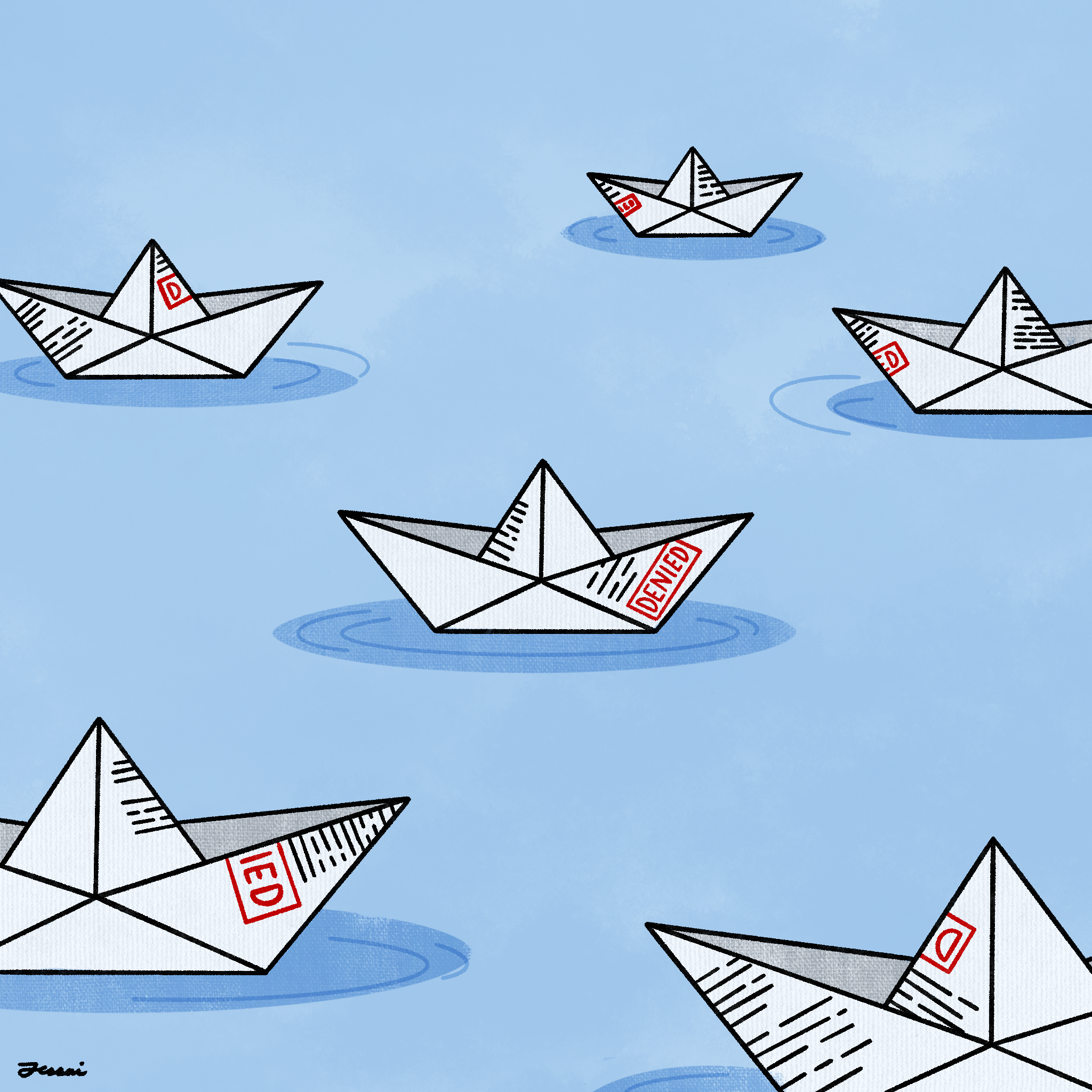
Jessai Flores
At this point every semester, after having emerged from the perilous tides of midterm season, Yale students find themselves watching the waves recede and reveal before them the menacing pincers of the creative writing applications hidden beneath the sand. What happens next is a mad dash to tame the beasts and scramble to get a seat in an ever-intensifying game of musical chairs. You may want to snatch an application up from the murky sand and try your luck at getting a seat in a course, but so will everybody else. It should be common knowledge now that if you want to get into a creative writing course, and perhaps later the creative writing concentration, chances are that you probably will not — and that is okay.
I speak as someone who has been rejected so many times from the creative writing courses, who never stood a chance to get into the creative writing concentration, and who gave up the fight entirely. My experience with the countless rejection emails denying me a spot in Yale’s creative writing courses has allowed me to reconsider my relationship with what it means to be a writer. There were misty-eyed moments where I once believed that perhaps I was not good enough, and that I would never have a literary career. This was of course just me being ruthless to myself and placing all my artistic value on what is practically just a lottery. Like a lottery, the results are nothing personal. I learned after my third semester applying and again getting rejected that the feeling of personal failure recedes much like floodwater after a storm. You get used to being told “no.” If anything the rejections are realistic. The publishing industry is notorious for being ruthless with rejections. What is an author without a stack of rejected manuscripts?
In fact, there are many people who have had storied literary careers and have made tremendous contributions to English literature who have never set foot in a Yale creative writing course. Phillip Larkin, Toni Morrison, Christina Rossetti, Sylvia Plath, Nathaniel Hawthorne and countless other men and women of letters never submitted applications to Advanced Poetry or Writing the Television Drama at Yale. Yet, they will spend more time in Yale classrooms than any of us, occupying permanent spots in overcrowded seminars for years to come. So if you do not get into the concentration or to any of the classes know that you will be in fantastic company. And who knows? You too might even end up on some future Yale professor’s syllabus.
Now, I am not arguing that the creative writing courses are terrible or that the instructors are heartless. I want to state, for the record and for posterity, that I have the utmost respect for the English and creative writing faculty. It is such an honor to have been on the same campus as a Nobel Prize winner, Pulitzer recipients, beloved poets, critics, journalists and writers. What I am arguing instead is that the creative writing courses are not a necessity nor a requirement to have a successful literary career or to leave an impact on literature and the arts. Do not weigh your value as a writer on the results of what will inevitably be a competitive application season. The creative writing courses are to the art of writing as Tabasco is to soup. Does it help? Sure. But a creative writing course does not on its own make a writer, much like soup cannot be just Tabasco and nothing else. Your writing, like a good soup, is made up of a vast list of ingredients: your experiences, influences and inspirations. The creative writing courses are just one of the potential ingredients at your disposal. Whether you find yourself in possession of this ingredient is not a reflection of your skills. Rather, it is evidence that the ingredient is scarce and in high demand. So cook with something else.
I am a writer who never got into any of the application-based creative writing courses or my dream concentration. Instead, I, like Plath, Rossetti and perhaps you, am a writer outside of the concentration. Locked out of a selective group. So I write unconcentrated on and unconcerned about what the results of the creative writing applications say about me. You will never find my work in a creative writing seminar, but you will find my voice elsewhere. If not here in this paper, then in other student publications and then later on bookshelves in dusty libraries. I am an unconcentrated writer bent to the will of my own ambition and paying no mind to my ever-growing and unsurprising list of rejection letters. The measure of a great writer is not whether they get accepted into programs, but instead what they do with the pile of rejected material on their desks.
What does a great writer do when they are rejected? They keep writing.
Writing is an art, and like a painting, not every gallery or classroom will want to make space for you. But, the act of writing is the act of space-making. If you do take your chance at tackling the sandy beasts of the creative writing applications, know that if you wipe out, there will still be plenty of room on the beach and lots of ocean to explore. So, lay out a towel, put paper in your typewriter, line up your margins and carve a space for yourself in the vast inky blue wonder of the literary arts.







